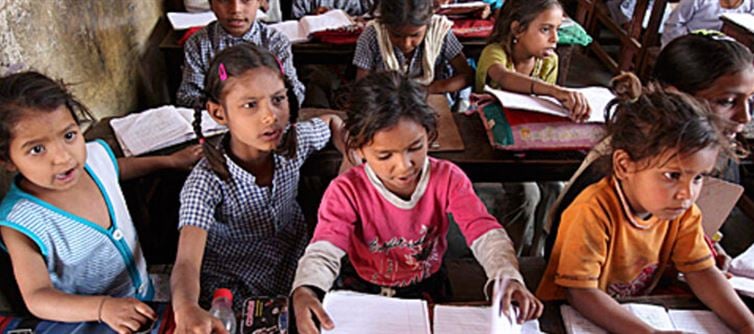
🎓 When Surnames Decide Scholarships: The Uncomfortable Truth About “Free Education” in India
In a country that worships education, why does equality still come with a price tag?
💥 The Irony of Inequality in the Name of Equality
Imagine two students standing outside the same IIT gate. Both worked day and night for years. Both cleared the same exam. Both carry dreams stitched from sleepless nights and borrowed notebooks.
But one walks in paying ₹0, and the other pays ₹10 lakh — not because of their income, not because of their struggle, but because of their surname.
This isn’t a thought experiment. This is India, 2025.
The child of a Dalit IAS officer pays nothing.
The child of a Brahmin farmer from a remote village pays ₹10,00,000.
An EWS student, supposedly “economically weak,” still pays ₹8,00,000.
Equality, it seems, is a scholarship awarded by ancestry, not adversity.
⚖️ The Price of a Surname
Let’s be clear: the intention behind reservations and fee relaxations was noble — to correct centuries of oppression and exclusion.
But what happens when the same policy, left untouched and unquestioned, begins to ignore present-day inequality?
Today, wealth, not caste, decides opportunity for many.
And yet, our education system refuses to acknowledge that poverty doesn’t discriminate by caste anymore — the system does.
Why should a bureaucrat’s child study for free while a farmer’s child mortgages land for a semester fee?
Why should one generation’s historical injustice translate into another’s economic burden?
In trying to fix one wrong, we’ve created a new hierarchy of helplessness.
💸 EWS — The Poor That Still Pay
The Economically Weaker Section (EWS) quota was supposed to bridge that gap — a safety net for poor general category families.
But here’s the punchline: it’s “economic” only on paper.
Even with the EWS tag, a student still pays around ₹8 lakh for a B.Tech course at IITs — a figure impossible for most rural, lower-middle-class families.
So while one student studies for free in the name of social justice, another drowns in debt in the name of economic justice.
And the government calls this “equitable access.”
🧠 Free for All, or Free for a Few?
education isn’t a privilege. It’s a right — the foundation on which every democracy stands.
If the government can waive corporate taxes worth thousands of crores, can’t it make education free for the next generation?
Why should equality in classrooms come with price tags?
Why should social identity decide who deserves relief?
The debate isn’t about caste. It’s about common sense.
If india truly believes in social justice, make education universally free.
Let every child — Dalit, Brahmin, Muslim, Tribal, EWS, OBC — step into IIT with the same dignity, the same freedom, and the same ₹0.
🧾 Caste Was Once a Curse. Now It’s an Algorithm.
What started as an instrument for justice has slowly become an instrument of imbalance.
Today, caste isn’t just a sociological marker — it’s a financial algorithm that decides who pays and who doesn’t.
In a system that claims to uplift the oppressed, the truly poor are invisible — hidden behind income certificates, quota ceilings, and policy blind spots.
It’s not caste we need to abolish.
It’s the lazy governance that refuses to redefine fairness in a modern context.
🔥 If Equality Has a Cost, It Isn’t Equality
india can’t call itself a meritocracy if birth still dictates opportunity.
It can’t call itself inclusive if poverty still has a caste.
We’re not asking for privilege — just parity.
We’re not rejecting history — just demanding rationality.
Because when a rich student studies for free and a poor student sells land, justice is not being served — it’s being traded.
🧨 It’s Time for a New Equation
If india wants to compete with the world, it must rewrite its education model.
Let IITs, IIMs, and universities lead a new era of fairness:
100% free education for all undergraduates, funded by state and CSR partnerships.
Means-based support, not surname-based subsidies.
Transparent, dynamic systems that evolve with economic realities.
education shouldn’t be a battlefield of castes.
It should be the bridge out of them.




 click and follow Indiaherald WhatsApp channel
click and follow Indiaherald WhatsApp channel